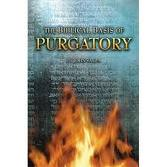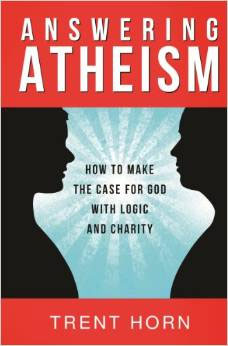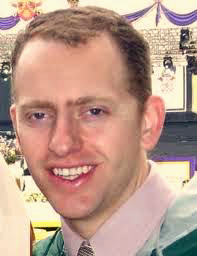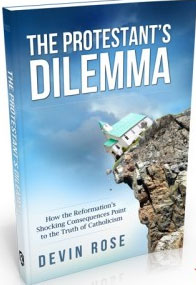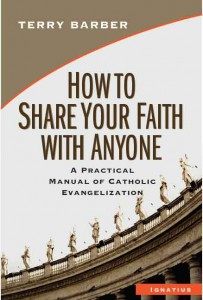A big “THANK YOU” to Ignatius Press for this excellent 2nd edition of the classic “Dare We Hope That All Men Be 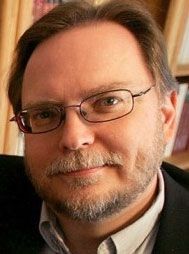 Saved?: With a Short Discourse on Hell” by Catholic theologian Fr. Hans Urs von Balthasar.  The newer edition contains an outstanding forward by Fr. Robert Barron.  The conversation with Mark Brumley sheds even greater light on why this is such an important work.  Mark also corrects the misrepresentations that have been put forward about it’s contents in recent years, including the false characterization of von Balthasar as an advocate of  “universalism”.  An exceptional work!  Once again, a great discussion with Mark Brumley.
Saved?: With a Short Discourse on Hell” by Catholic theologian Fr. Hans Urs von Balthasar.  The newer edition contains an outstanding forward by Fr. Robert Barron.  The conversation with Mark Brumley sheds even greater light on why this is such an important work.  Mark also corrects the misrepresentations that have been put forward about it’s contents in recent years, including the false characterization of von Balthasar as an advocate of  “universalism”.  An exceptional work!  Once again, a great discussion with Mark Brumley.
[powerpress]
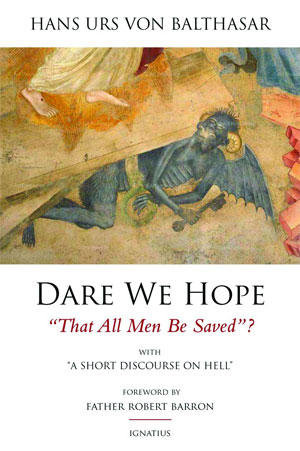 You find the book here
You find the book here
“Truly deep theological questions can rarely be answered with a simple yes or no. Rather, they are approached by the careful theologian, who circles around them, making distinctions, bringing essential aspects to light. The issue of who and how many will be saved is surely one of the thorniest theological puzzles in the Catholic tradition, and I don’t know any theologian-classical or contemporary-who performs the nimble task of bringing out the complexity and profiles of this issue better than Hans Urs von Balthasar. In this short but rich text, you will hear of grace, punishment, mercy, the awful self-absorption of sin-but above all of hope.”
– Fr. Robert Barron, Rector/President Mundelein Seminary/University of Saint Mary of the Lake
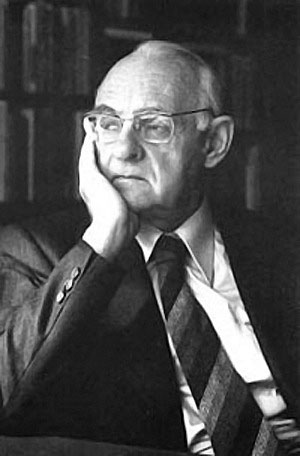
This entry was posted on Monday, February 16th, 2015 at 11:47 am
You can follow any responses to this entry through the RSS 2.0 feed.
How can the Crusades be considered “glorious”? That was the first question that popped up in my mind when I saw “The Glory of the Crusades” come across my desk.  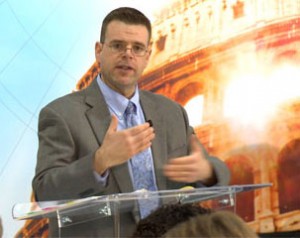 As I found myself caught up in the history unfolding inside the pages of this incredible book, I found that author Steve Weidenkopf approached this subject in an incredibly balanced, engaging and thoughtful way. By far one of the best books I have ever read on the subject. Steve is a lecturer of Church History at the Notre Dame Graduate School of Christendom College and the creator and author of Epic: A Journey through Church History, an adult faith-formation program on the 2,000-year history of the Church. Meticulous researched (just check out the end notes), with little hint of any political agenda, Steve lets history stand on its own solid clear footing. Thank you Catholic Answers for this outstanding book!
As I found myself caught up in the history unfolding inside the pages of this incredible book, I found that author Steve Weidenkopf approached this subject in an incredibly balanced, engaging and thoughtful way. By far one of the best books I have ever read on the subject. Steve is a lecturer of Church History at the Notre Dame Graduate School of Christendom College and the creator and author of Epic: A Journey through Church History, an adult faith-formation program on the 2,000-year history of the Church. Meticulous researched (just check out the end notes), with little hint of any political agenda, Steve lets history stand on its own solid clear footing. Thank you Catholic Answers for this outstanding book!
[powerpress]
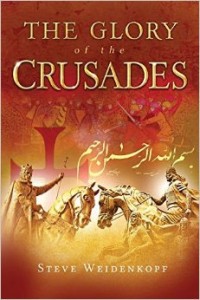 You can find the book here
You can find the book here
The Glory of the Crusades is valuable not only as history but also as a scholarly debunking of centuries of Protestant and Enlightenment distortion of the facts about the West s struggles against militant Islam. –Rev. C. John McCloskey Research fellow, Faith and Reason Institute
This excellent book employs decades of scholarly research to show average readers what medieval historians have long known that popular culture s image of the Crusades has nothing at all to do with the events themselves. Catholics who cringe at the mention of the Crusades will find in this work a surprising and inspiring story of faith. –Thomas F. Madden Director, Center for Medieval and Renaissance Studies, Saint Louis University
This entry was posted on Monday, February 9th, 2015 at 4:12 pm
You can follow any responses to this entry through the RSS 2.0 feed.
I love talking with John Salza…tough doctrine and dogma that for most of us is difficult to explain, is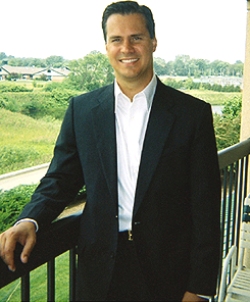 just so easy for John. And he shares his knowledge with all of us…what a gift!
just so easy for John. And he shares his knowledge with all of us…what a gift!
John’s website is www.scripturecatholic.com
[powerpress]
From the book description:
In The Biblical Basis for Purgatory, John  offers the definitive scriptural explanation of this distinctively Catholic doctrine. Building on the teachings of Christ and St. Paul, he shows how the existence of a place of temporal punishment after death is not only a logical extension of what we know about the reality of sin and God’s justice, but is also a supreme expression of God’s love and mercy. Although Purgatory is a place of mercy, its pains are real, and they are severe. This book does more than defend and explain Purgatory it provides a solid plan, drawn from the Church s perennial wisdom for conquering our sins by God s grace, while still on earth.
Tags: biblical basis, catholic, catholic podcast, catholic prayer, cathollc spirituality, john salza, purgatory
This entry was posted on Sunday, November 2nd, 2014 at 12:32 am
You can follow any responses to this entry through the RSS 2.0 feed.
Temporal Consequences for Sin
[powerpress]
Common sense tells us that our sins have consequences.  If after committing a sin, we confess, then God promises to forgive us.  Yet there can still remain what the Church calls a “temporal punishment,†or consequence, for our sin.
For instance, in 2 Samuel 12 after David confesses his sin of adultery, the prophet Nathaniel tells him that the Lord has forgiven him, but nevertheless he will suffer the death of his child as a consequence of his sin.1  Our relationship with God is a personal one and our sins are not just rule violations, but personal offenses that need to be mended.
We can fulfill the temporal punishments for our sins through sincere sorrow for our sins, prayers, sacrifices, and acts of charity.
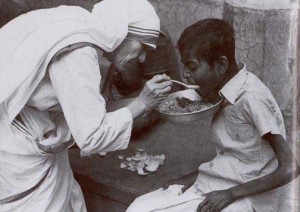
But as part of the Body of Christ, we can also assist in coming to the aid of our brothers and sisters, both living and dead.  This is the basic principle of the Church’s practice of indulgences, and undoubtedly what St. Paul has in mind in Colossians 1:24 where he says, “I rejoice in my sufferings, and complete what is lacking in Christ’s affliction for the sake of his body, the Church.â€Â  Or perhaps it’s put best in 1 Peter 4:8, which simply states, “love covers a multitude of sins.â€
1Â -Â Â 2Â Sam. 12:13-14
Tags: catholic, catholic podcast, catholic prayer, cathollc spirituality, indulgences, sin
This entry was posted on Friday, September 19th, 2014 at 3:01 am
You can follow any responses to this entry through the RSS 2.0 feed.
Episode 5 – Whether sacred doctrine is a matter of argument? [powerpress]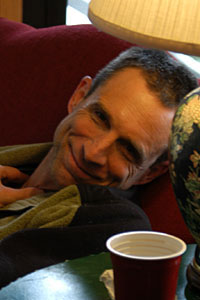
Question 1 Article 8Â Whether sacred doctrine is a matter of argument?
Objection 1: It seems this doctrine is not a matter of argument. For Ambrose says (De Fide 1): “Put arguments aside where faith is sought.” But in this doctrine, faith especially is sought: “But these things are written that you may believe” (Jn. 20:31). Therefore sacred doctrine is not a matter of argument.
Objection 2: Further, if it is a matter of argument, the argument is either from authority or from reason. If it is from authority, it seems unbefitting its dignity, for the proof from authority is the weakest form of proof. But if it is from reason, this is unbefitting its end, because, according to Gregory (Hom. 26), “faith has no merit in those things of which human reason brings its own experience.” Therefore sacred doctrine is not a matter of argument.
On the contrary, The Scripture says that a bishop should “embrace that faithful word which is according to doctrine, that he may be able to exhort in sound doctrine and to convince the gainsayers” (Titus 1:9). 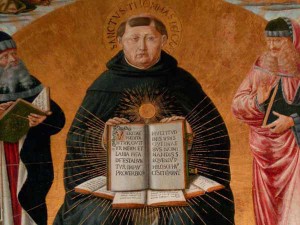
I answer that, As other sciences do not argue in proof of their principles, but argue from their principles to demonstrate other truths in these sciences: so this doctrine does not argue in proof of its principles, which are the articles of faith, but from them it goes on to prove something else; as the Apostle from the resurrection of Christ argues in proof of the general resurrection (1 Cor. 15). However, it is to be borne in mind, in regard to the philosophical sciences, that the inferior sciences neither prove their principles nor dispute with those who deny them, but leave this to a higher science; whereas the highest of them, viz. metaphysics, can dispute with one who denies its principles, if only the opponent will make some concession; but if he concede nothing, it can have no dispute with him, though it can answer his objections. Hence Sacred Scripture, since it has no science above itself, can dispute with one who denies its principles only if the opponent admits some at least of the truths obtained through divine revelation; thus we can argue with heretics from texts in Holy Writ, and against those who deny one article of faith, we can argue from another. If our opponent believes nothing of divine revelation, there is no longer any means of proving the articles of faith by reasoning, but only of answering his objections—if he has any—against faith. Since faith rests upon infallible truth, and since the contrary of a truth can never be demonstrated, it is clear that the arguments brought against faith cannot be demonstrations, but are difficulties that can be answered. (more…)
Tags: catholic, catholic podcast, catholic prayer, cathollc spirituality
This entry was posted on Monday, September 15th, 2014 at 11:18 am
You can follow any responses to this entry through the RSS 2.0 feed.
“Answering Atheism: How to Make the Case for God with Logic and Charity” is a compassionately engaging and 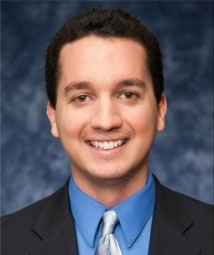 intellectually-savvy response to the attacks on the existence of God.  Trent Horn is a welcomed fresh voice in the forum of Catholic apologetics.  Well-researched and thoughtfully presented, this book is a must have for all who wish to defend the faith, but it’s also for those who wish to know and grow in it as well.  In our conversation, we touch on many of the enter points for dialogue which we encounter everyday in discussions with family, friends, co-workers, and how to approach those times of engagement in a Christ-like manner.  A highly recommended book by Trent and, his publisher, the good folks at “Catholic Answers”.
intellectually-savvy response to the attacks on the existence of God.  Trent Horn is a welcomed fresh voice in the forum of Catholic apologetics.  Well-researched and thoughtfully presented, this book is a must have for all who wish to defend the faith, but it’s also for those who wish to know and grow in it as well.  In our conversation, we touch on many of the enter points for dialogue which we encounter everyday in discussions with family, friends, co-workers, and how to approach those times of engagement in a Christ-like manner.  A highly recommended book by Trent and, his publisher, the good folks at “Catholic Answers”.
[powerpress]
You can find the book here
Answering Atheism gets high grades on the three R’s: It is readable, reasonable, and researched. Its defense of the cosmological argument has depth and detail, yet it is not so technical that you need to take a philosophy course to comprehend it. —Peter Kreeft, professor of philosophy, Boston College
I’ve read many works of popular apologetics; this is the best! –Stephen Bullivant, editor, The Oxford Handbook of Atheism
Tags: catholic, catholic podcast, catholic prayer, cathollc spirituality
This entry was posted on Monday, September 1st, 2014 at 9:45 am
You can follow any responses to this entry through the RSS 2.0 feed.
Sacramentals
[powerpress]
In the minds of non-Catholics, Catholicism often conjures images of Catholic stuff: candles, crucifixes, rosaries, statues, holy water, oils,
and the like. These are called sacramentals—not to be confused with the seven sacraments, they are material items that the Lord uses as conduits of his blessing.
Because of our belief in sacramentals, Catholics have sometimes been accused of practicing magic. But magic is the pagan or new age belief that an object has power in and of itself. Sacramentals are the Christian belief that the living and true God uses His creation as instruments of grace and healing.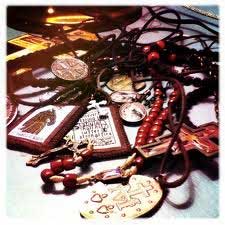
Sacramentals appear all throughout the Scriptures. James speaks of anointing with oil.1 Acts of the Apostles tells us that Paul’s handkerchiefs brought healing power to those they touched.2In the Old Testament, Elisha’s bones were used to bring a dead man back to life.3
And of course the Gospels portray Our Lord himself often using water, mud or even his own spit to perform mighty works of healing and cleansing, a power which Jesus passed on to his priests to be continued to this day.4Â Sacramentals are neither magic nor make believe, but powerful weapons to be utilized in our spiritual journeys.
1 -Â Js. 5:14
2 -Â Acts 19:11-12
3 -Â 2 Kgs. 13:21
4 -Â cf. Mt. 10:7-8; Lk. 10:18-20; Jn. 20:21-23, etc.
Tags: catholic, catholic apologetics, catholic podcast, catholic prayer, cathollc spirituality, sacramentals
This entry was posted on Monday, July 28th, 2014 at 11:56 am
You can follow any responses to this entry through the RSS 2.0 feed.
Episode 3 – The Case for Christianity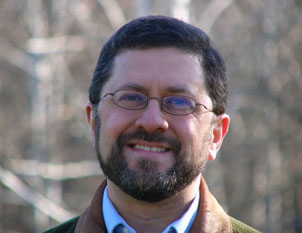
[powerpress]
The Resilient Church with Mike Aquilina, offers a fascinating look at the trials and triumphs of the Catholic Church over the past two thousand years. Fast-paced sketches of critical periods in church history give readers perspective on the challenges faced by the church today. Mike Aquilina does not shrink from the realities of the past, including badly behaved leaders and those who betrayed the Lord. Yet he also leaves us all with well-founded hope for the future: God remains faithful in every circumstance and fulfills his promise to remain with his church always.
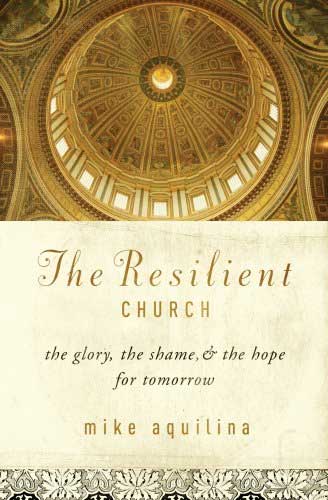 Pick up a copy of Mke’s book. You’ll find so much more and invaluable references and resoources, as well
Pick up a copy of Mke’s book. You’ll find so much more and invaluable references and resoources, as well
Also visit Mike’s “Discerning Hearts†page for more audio downloads and information!
Tags: catholic, catholic podcast, catholic prayer, cathollc spirituality
This entry was posted on Thursday, June 26th, 2014 at 10:47 am
You can follow any responses to this entry through the RSS 2.0 feed.
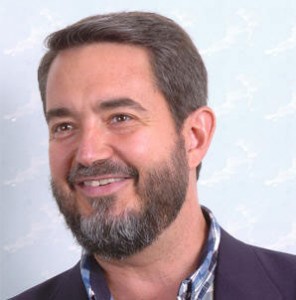 What a delight to once again speak with Dr. Scott Hahn, especially about his exceptionally important book  Evangelizing Catholics: A Mission Manual for the New Evangelization”. Who should have this book? Everyone!  Just the right mix for the adult Catholic to digest: part history book, part theology book, steeped in Scared Scripture, a sacramental feast,  anointed by the Holy Spirit…this work is just what the Church needs at this time.  If I had my way, every Catholic community would be passing out this book after mass even more eagerly than it does it’s parish bulletin! HIGHLY ENCOURAGED READING! [powerpress] Â
What a delight to once again speak with Dr. Scott Hahn, especially about his exceptionally important book  Evangelizing Catholics: A Mission Manual for the New Evangelization”. Who should have this book? Everyone!  Just the right mix for the adult Catholic to digest: part history book, part theology book, steeped in Scared Scripture, a sacramental feast,  anointed by the Holy Spirit…this work is just what the Church needs at this time.  If I had my way, every Catholic community would be passing out this book after mass even more eagerly than it does it’s parish bulletin! HIGHLY ENCOURAGED READING! [powerpress]  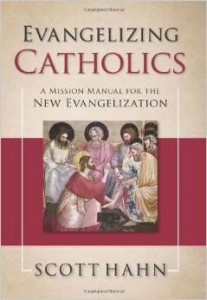 You can find the book here
You can find the book here
You can’t keep the faith unless you give it away. That’s a fact. To be a Christian is to be an evangelizer. When the Catholic Church calls us to a “New Evangelization,” that’s  simply a reminder to us of what has always been true. The good news is: you can do it – you can evangelize – and Scott Hahn shows you how. In this this very practical “mission manual” Dr. Hahn equips you with: A guide to understanding what the New Evangelization is, and who it’s really for A roadmap that leads you to where it all happens (hint: it’s closer than you think) A simple, beautiful message to share – in words and actions You don’t need esoteric knowledge. You don’t need to master a new set of skills. Evangelization, for Catholics, is simply friendship raised up to the highest level. Enter a deeper friendship with Christ, and you’ll want to share his companionship more and more with a wider circle of friends.
Tags: catholic, catholic podcast, catholic prayer, cathollc spirituality, dr scott hahn, Evangelizing Catholics, scott hahn
This entry was posted on Friday, May 30th, 2014 at 5:05 pm
You can follow any responses to this entry through the RSS 2.0 feed.
 Why is it essential for the Christian to truly “know” Jesus as the “Christ”?  Why is a relationship with Jesus Christ paramount for the spiritual life?  What is it be an authentic disciple of Christ?  These questions are just a few that are answered by master apologist and president of Ignatius Press, Mark Brumley as we discuss the phenomenal book by Cardinal Christoph Schoenborn,  the Archbishop of Vienna. Class A catechesis and rich source of spiritual reading, not only for Catholics, but for the entire Body of Christ.  Highly Recommended!
Why is it essential for the Christian to truly “know” Jesus as the “Christ”?  Why is a relationship with Jesus Christ paramount for the spiritual life?  What is it be an authentic disciple of Christ?  These questions are just a few that are answered by master apologist and president of Ignatius Press, Mark Brumley as we discuss the phenomenal book by Cardinal Christoph Schoenborn,  the Archbishop of Vienna. Class A catechesis and rich source of spiritual reading, not only for Catholics, but for the entire Body of Christ.  Highly Recommended!
[powerpress]
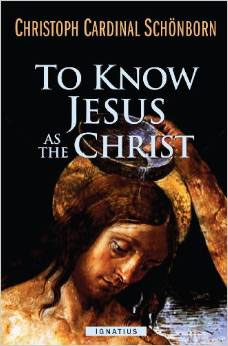 You can find the book here
You can find the book here
From the book description:
An inspiring and practical work by a great churchman about the eternal importance of the Christian faith, and the life and teachings of Jesus Christ, and how it is crucial for our everyday life.
“Catechesis is something different from a theological discourse. Catechesis is actually a way, and we are invited to set out on such a catechetical way. For catechesis is very closely connected with the mission of Jesus himself. It is actually the direct translation of his mission, which he gave to the apostles at the end of his life: ‘All authority in heaven and on earth has been given to me. Go therefore and make disciples of all nations.’ “
Tags: catholic, catholic podcast, catholic prayer, cathollc spirituality
This entry was posted on Tuesday, May 20th, 2014 at 1:36 pm
You can follow any responses to this entry through the RSS 2.0 feed.
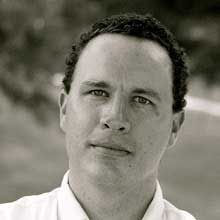 In “The Protestant’s Dilemma: How the Reformation’s Shocking Consequences Point to the Truth of Catholicism”, author/apologist Devin Rose carefully reflects on various Protestant claims and carries them to their logical conclusion.  By incorporating, at times, his own intellectual journey from Protestantism to Catholicism, he simply presents a strong case for the authority of Catholic Church teaching.  The format of the book is excellent for apologetic study. Addressing the basics of the faith, as well as the particulars of Catholic Social Teaching, he gently, but meticulously offers a sound manual of instruction that should be in the library of every one of us called to the “New Evangelization”.
In “The Protestant’s Dilemma: How the Reformation’s Shocking Consequences Point to the Truth of Catholicism”, author/apologist Devin Rose carefully reflects on various Protestant claims and carries them to their logical conclusion.  By incorporating, at times, his own intellectual journey from Protestantism to Catholicism, he simply presents a strong case for the authority of Catholic Church teaching.  The format of the book is excellent for apologetic study. Addressing the basics of the faith, as well as the particulars of Catholic Social Teaching, he gently, but meticulously offers a sound manual of instruction that should be in the library of every one of us called to the “New Evangelization”.
[powerpress]
You can find the book here
From the book description:
What if Protestantism were true? What if the Reformers really were heroes, the Bible the sole rule of faith, and Christ s Church just an invisible collection of loosely united believers? As an Evangelical, Devin Rose used to believe all of it. Then one day the nagging questions began. He noticed things about Protestant belief and practice that didn t add up. He began following the logic of Protestant claims to places he never expected it to go -leading to conclusions no Christians would ever admit to holding. In The Protestant s Dilemma, Rose examines over thirty of those conclusions, showing with solid evidence, compelling reason, and gentle humor how the major tenets of Protestantism – if honestly pursued to their furthest extent – wind up in dead ends. The only escape? Catholic truth. Rose patiently unpacks each instance, and shows how Catholicism solves the Protestant s dilemma through the witness of Scripture, Christian history, and the authority with which Christ himself undeniably vested his Church. The Protestant s Dilemma is the perfect book for non-Catholics trying to work through their own nagging doubts, or for Catholics looking for a fresh way to deepen their understanding of the Faith
Tags: catholic, catholic podcast, catholic prayer
This entry was posted on Monday, March 31st, 2014 at 6:32 am
You can follow any responses to this entry through the RSS 2.0 feed.
Terry Barber is a pioneer in the New Evangelization.  He is the founder of Saint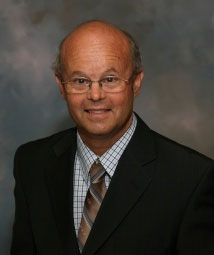 Joseph Communications, Inc., Lighthouse Catholic Media and is a co-host for Reasons for Faith Live with Jesse Romero on EWTN Radio Network. His book, “How to Share Your Faith with Anyone: A Practical Manual of Catholic Evangelization”, is an ideal resource for anyone who desires to share the Good News and become an effective evangelist for Christ.  Immensely practical, Terry’s work is an important addition to the apologetic lexicon.  Our conversation was a joy for me to be a part of.  It’s easy to see why Terry Barber is so great at what he does; his joy, found in his faith, is infectious and grace-filled.
Joseph Communications, Inc., Lighthouse Catholic Media and is a co-host for Reasons for Faith Live with Jesse Romero on EWTN Radio Network. His book, “How to Share Your Faith with Anyone: A Practical Manual of Catholic Evangelization”, is an ideal resource for anyone who desires to share the Good News and become an effective evangelist for Christ.  Immensely practical, Terry’s work is an important addition to the apologetic lexicon.  Our conversation was a joy for me to be a part of.  It’s easy to see why Terry Barber is so great at what he does; his joy, found in his faith, is infectious and grace-filled.
[powerpress]
You can find the book here
“Before it was fashionable to talk about the New Evangelization, Terry Barber was already doing it. His book is a practical manual written from decades in the trenches. After laying the foundation for what evangelism is and why Catholics need to evangelize, the veteran evangelist gives practical training and application to the troops. Soldiers of Christ, grab this book, arise and share your faith!” —Steve Ray. Host, The Footprints of God film series
“Terry Barber has long been one of the Church’s finest evangelists. His excellent book shows us how the new evangelization requires new apologetics – a new way to explain why the Church’s teachings are true and why Jesus is the answer to the deep desires of the human heart.” —Most Reverend Jose Gomez, Archbishop of Los Angeles
Tags: catholic, catholic podcast, catholic prayer
This entry was posted on Thursday, January 23rd, 2014 at 12:00 pm
You can follow any responses to this entry through the RSS 2.0 feed.
Here is part 2 of our discussion:
With a pastor’s heart and eagle-eye accuracy, the gifted Al Kresta addresses “Dangers to the Faith: Recognizing Catholicism’s 21st Century 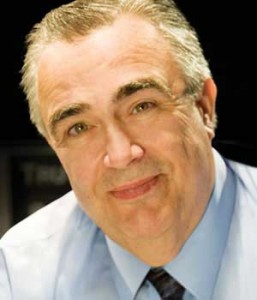 Opponents” in his newest book published by Our Sunday Visitor.    The secular world has presented many twisted versions of the “Truth” over the years: from New Age thought to Isalm, Scientism to Consumerism, Oprah and Shirley to Bart Erhman and Carl Sagan. Al Kresta challenges the “opponents” of faith with Christ-like love and wisdom. In the process, he teaches us all how to evangelize as a true disciple of Christ. A must have work for all those who may have a seeking heart and a desire to grow in their faith and to share it with family, friends and all they may encounter. One of the best books offered in this Year of Faith….a modern classic that should be in every Catholic home!
Opponents” in his newest book published by Our Sunday Visitor.    The secular world has presented many twisted versions of the “Truth” over the years: from New Age thought to Isalm, Scientism to Consumerism, Oprah and Shirley to Bart Erhman and Carl Sagan. Al Kresta challenges the “opponents” of faith with Christ-like love and wisdom. In the process, he teaches us all how to evangelize as a true disciple of Christ. A must have work for all those who may have a seeking heart and a desire to grow in their faith and to share it with family, friends and all they may encounter. One of the best books offered in this Year of Faith….a modern classic that should be in every Catholic home!
Here is part 2 of our discussion:
[powerpress]
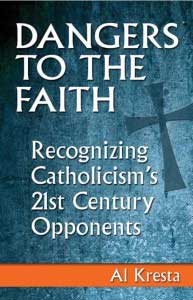 You can find the book here
You can find the book here
Be sure to listen to “Kresta in the Afternoon” on the Ave Maria Radio Network
From the description:
Dangers to the Faith: Recognizing Catholicism’s 21st Century Opponents is the perfect springboard for discussing the new world in which the Catholic Church exists today. Learn how to better carry out the missionary mandate of the Church. The question isn’t whether you will be a witness to Christ, but whether you will be a faithful witness.
Tags: al kresta, Bart Erhman, Carl Sagan.� Al Kresta
This entry was posted on Tuesday, July 23rd, 2013 at 8:44 am
You can follow any responses to this entry through the RSS 2.0 feed.
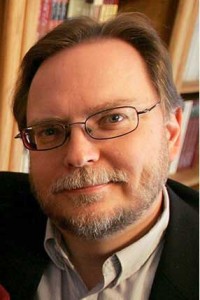 It’s great to be joined once again by Mark Brumley, this time to discuss  “Knowing God: God and the Human Condition” (previously titled God and the Human Mind) authored by the great Catholic writer, teacher, and publisher Frank Sheed.  Written in 1966 during the time of the Second Vatican Council, Sheed  addresses the most challenging questions the human mind can pose about God, without presenting answers in dry academic way.  Instead, because of his gifted writing style, he engages the reader with a desire to discover “mystery” in all its forms.
It’s great to be joined once again by Mark Brumley, this time to discuss  “Knowing God: God and the Human Condition” (previously titled God and the Human Mind) authored by the great Catholic writer, teacher, and publisher Frank Sheed.  Written in 1966 during the time of the Second Vatican Council, Sheed  addresses the most challenging questions the human mind can pose about God, without presenting answers in dry academic way.  Instead, because of his gifted writing style, he engages the reader with a desire to discover “mystery” in all its forms.
[powerpress]
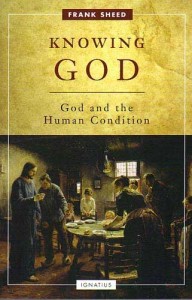 You can find the book here
You can find the book here
“This book is vintage Sheed: clear, commonsensical, and convincing. This is the Sheed of the two masterpieces of apologetics Theology and Sanity and Society and Sanity. But this is also a new Sheed: older and wiser, more practical and human–the post-Vatican II Sheed. I mean this in all the good senses, the John Paul II senses: he is sensitive to the dangers of “the good old days”: verbalism, “dead orthodoxy,” rationalism, deism, what Sheed calls “theometry” instead of theology: an abstract, formal theological geometry that only wants to define terms and win debating points. Instead, this book is a kind of theological midrash, a deepening, a spelunking in the caves of the deepest mysteries with the clear light of honest words–honest with heart as well as head. It unites dogmatic theology with lived religion. It is precisely the breath of fresh air that Pope John XXIII opened the windows for, and in terms the layman can clearly grasp. —– Peter Kreeft, Author, Because God is Real
Tags: catholic, catholic podcast, catholic prayer
This entry was posted on Tuesday, February 12th, 2013 at 2:48 am
You can follow any responses to this entry through the RSS 2.0 feed.
“The Seven Big Myths About the Catholic Church: Distinguishing Fact from Fiction about Catholicism” Â by Dr. Christopher Kaczor is a 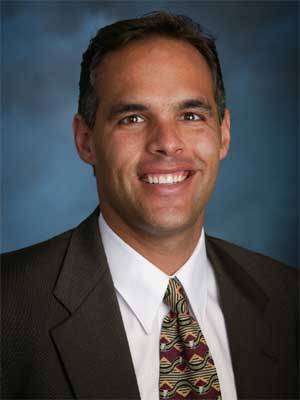 must have resource for Catholics!
must have resource for Catholics!
The misconceptions about our faith are so prevalent in today’s society that is almost guaranteed that you will encounter at least one of these myths in daily conversations with friends, co-workers, and sadly to say, family members.  To have the peace of mind, in order to answer the objection, is invaluable, especially when we are called to the New Evangelization.  But even more than that, Dr. Kaczor helps us to give a reason for our hope…the presence of Jesus Christ and His saving grace and mercy found in our Roman Catholic faith.
[powerpress]
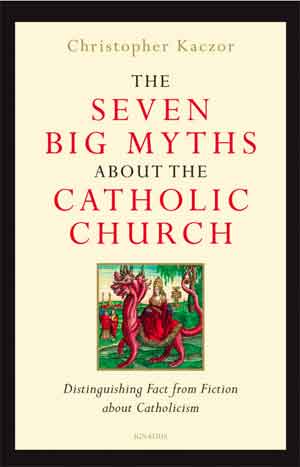 You can find the book here
You can find the book here
The Seven Myths:
The Church Opposes Science: The Myth of Catholic Irrationality
The Church Opposes Freedom and Happiness: The Myth of Catholic Indifference to Earthly Welfare
The Church Hates Women: The Myth of Catholic Misogyny
Indifferent to Love, the Church Banned Contraception: The Myth of Opposition between Love and Procreation
The Church Hates Gays: The Myth of Catholic “Homophobia”
The Church Opposes Same-Sex Marriage Because of Bigotry: The Myth That There Is No Rational Basis for Limiting Marriage to One Man and One Woman
Priestly Celibacy Caused the Crisis of Sexual Abuse of Minors: The Myth of Priestly Pedophilia
“All of this book is full of clarity and charity, but two chapters are masterpieces, each worth ten times the price of the whole book. The chapter on contraception is the most simple, commonsensical, winsome and persuasive I have ever seen. It could have been written only by a very good and wise husband and father. The chapter on same-sex marriage has the clearest and the completest logic I have ever read on the subject.” —Peter Kreeft, Boston College
Tags: catholic church, Catholic Irrationality The Church Opposes Freedom, Christopher Kaczor
This entry was posted on Monday, December 10th, 2012 at 7:22 am
You can follow any responses to this entry through the RSS 2.0 feed.

